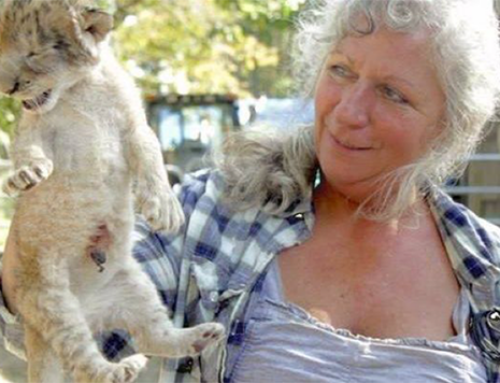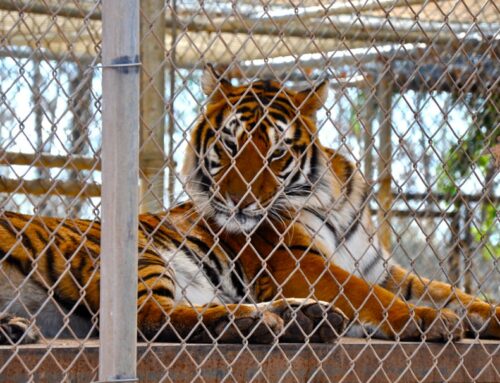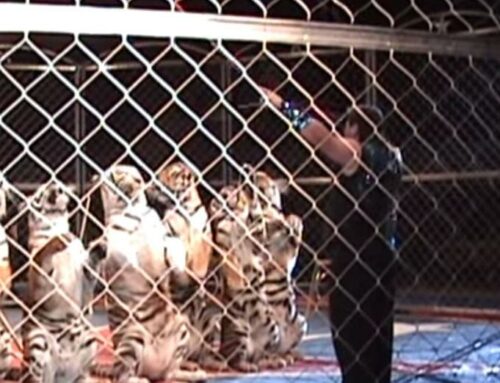Conservators Center NC
Mindy Stinner Caswell
2021: Wolves bite worker at same NC conservatory where lion killed intern in 2018. https://www.wsoctv.com/news/local/wolf-attacks-worker-same-nc-conservatory-where-lion-killed-intern/TJGVBQB4KVDAFFUQZOUERARR7M/
2018: 22-year-old Alex Black was attacked and killed by a lion on December 30th while working as an intern at the Conservation Center near Burlington, NC. The autopsy says she was dragged by the neck before she died.
The report says she died as a result of multiple, deep lacerations to her neck that resulted in significant blood loss. Black also suffered a punctured skull, fractured spinal cord, and a number of additional lacerations across her body during the attack. https://www.witn.com/content/news/Lion-escapes-kills-22-year-old-intern-at-North-Carolina-wildlife-conservatory-503692321.html
Per the article below, the Conservator’s Center has sent animals to the Baghdad Zoo and to the Natural Science Center, a local zoo. True sanctuaries provide a permanent home, they do not send their animals to zoos, particularly not someplace like the Baghdad Zoo. Their website talks about breeding, which true sanctuaries do not do, and they reportedly are advocates of private ownership of exotic animals.
Our tour at the Conservators’ Center in Caswell County was winding to an end Saturday afternoon before Julia Wagner brought us to the “star attraction.”
He’s Arthur, a handsome white tiger. Arthur was a malnourished cub when he arrived three years ago, but he’s plenty big and healthy looking now.
“He is not smart,” Wagner confided to a group of about 15 visitors. “He is challenged by a lot of things. But he’s sweet.”
Wagner, the center’s director of outreach, shared observations about the individual characteristics of many of the nearly 100 animals we saw during our hour-long tour. A former keeper, she’s clearly in love with her work.
The population includes 10 tigers, 21 lions and two leopards, as well as servals, a caracal, bobcats, a lynx, wolves, an ocelot, binturongs, lemurs and many other species.
My visit was prompted by last week’s tragedy near Zanesville, Ohio. The owner of an exotic animal farm opened the cages, then killed himself. Local authorities, whose priority was public safety, gunned down 35 lions and tigers.
So here, about 15 miles northeast of Burlington, occupying 40 acres of woodland and a former farm, is a facility with nearly as many large cats, as well as other potentially dangerous animals. Yet it’s not a state zoo or even a public-private facility like Greensboro’s Natural Science Center.
In fact, North Carolina is one of a handful of states — with Ohio — that doesn’t regulate private ownership of exotic animals. There are as many as 150 lions and tigers at federally licensed facilities in North Carolina, according to some estimates.
Last week’s incident inevitably raises questions about the need for tighter restrictions or an outright ban on private ownership.
The issue gets Mindy Stinner’s attention. She is the 12-year-old center’s co-founder and director. High standards and regular inspections to assure public safety and animal welfare are fine with her, but not a prohibition that would close her operation. It’s too important. For most of the animals at her facility, “we were the last resort before euthanasia,” she said.
That’s how the center ended up with so many big cats. Another problem facility in Ohio was shut down in 2004, leaving 14 lions and tigers in need of a new home.
Since then, the center has given two tigers — on “permanent loan” — to the Natural Science Center and two others to the Baghdad Zoo, whose tigers were killed after the U.S. invasion in 2003. But most of the center’s animals are there for life.
Lives in captivity aren’t natural for lions and tigers, but that’s all these animals know. My impression — strictly a layman’s view — is that the animals are well cared for and content. Their enclosures are clean and designed to stimulate the occupants. They have shelter and shade. Not all are as roomy as the staff would like, Wagner said, but there are plans to enlarge them as the facility expands on additional property it owns.
The center looks secure, and an emergency response plan is on file with the Caswell County Sheriff’s Office.
Unfortunately, not all facilities keeping exotic animals are run properly. Stinner said there are a couple in North Carolina that concern her. And one of her tigers came from a woman who kept it in her backyard for a decade before giving it up. Yikes!
The center doesn’t fall easily into any category. It’s not entirely a rescue facility, although it does that. It’s not a breeding facility, although it does breed some smaller animals, but not its big cats. It doesn’t buy or sell animals. And it’s not a zoo, although it offers tours by appointment (for $10 per person). That income provides a large part of its $150,000 budget, as do sponsorships. And it relies heavily on volunteer work and donated supplies (like fresh road kill; deer are especially welcome).
The issue of regulation is likely to heat up. Glenn Dobrogosz, executive director of the Natural Science Center, urges an approach that would deal with bad outfits but allow responsible private operations like the Conservators’ Center, which is licensed by the U.S. Department of Agriculture, to continue.
“If you put them out of business, what are you going to do with their animals — euthanize them?
“It’s too easy to say shut ’em all down and legislate it. I don’t buy that. But there are people indiscriminately breeding these animals for a profit. That’s sick,” Dobrogosz said.
I agree. If new laws are needed, they must draw careful distinctions between shoddy operators and facilities that serve valid purposes. As long as there are animals like Arthur, there will be a need for places like the Conservators’ Center to give them a comfortable home.






Leave A Comment
You must be logged in to post a comment.